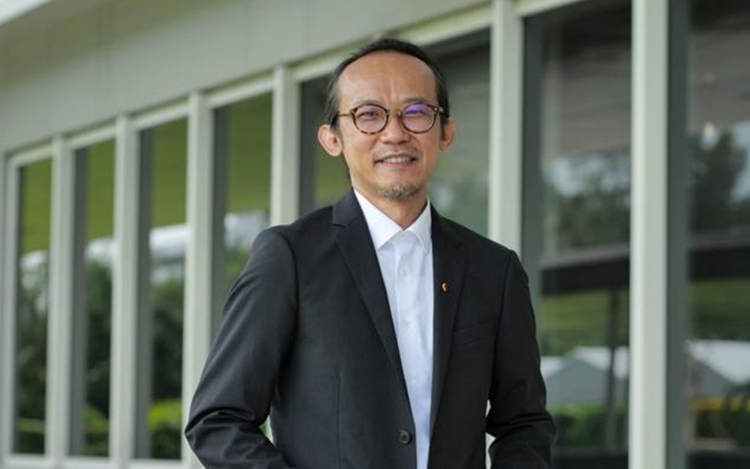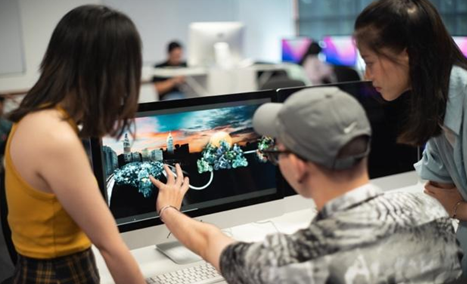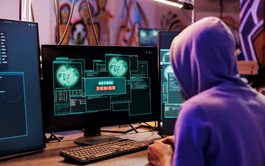
Associate Professor Lim Kok Yoong, RMIT University Vietnam. Photo: RMIT
Digitisation of the modern Vietnamese society
Vietnam's digital habits have been evolving fast and are now seamlessly woven into the Vietnamese urban experience. This rapid progress is largely thanks to widespread Internet adoption, with the number of Internet users rising from 36 million in 2014 to 88 million in 2024, and projected to surpass 100 million by 2027, according to Statista. This signals vast untapped potential for growth.
Most smart city visions have focused on enhancing overall quality of life by leveraging technology. However, without cultural depth, these visions risk becoming 'technological shells' – efficient on the surface yet devoid of the humanity that makes cities truly livable.
As Vietnam strives to become a digital society by 2030 and a high-income country by 2050, it has an opportunity to reimagine digital innovation not as technocratic progress but as a cultural act, preserving soul while building smarter infrastructure.
Digital culture as a foundation for smart cities
Digital culture goes beyond digitised content or creative industries. It is about the way people act, behave, engage, and form beliefs and values collectively with technologies in digital environments. It is also about how culture and heritage are preserved and integrated into the digital ecosystem. Yet within current smart city strategies, cultural digitisation has received relatively little attention.
The success of Vietnam's smart city agenda hinges not solely on top-down technological deployment, but on bottom-up cultural adaptation and citizen-driven innovation. Smart cities must be designed for data efficiency as well as the human experience, ensuring technology enhances – not erases – local identities, creative agency, and cultural meaning. Otherwise, people may feel disconnected from the very systems designed to serve them, like living in a place that's intelligent, but indifferent.
We already have cultural assets to build from. Three Vietnamese localities – Hanoi, Hoi An, and Da Lat – have been recognised in the UNESCO Creative Cities Network for design, crafts and folk art, and music, respectively. The local creative digital art scene is burgeoning, with interdisciplinary collaborations forming.
Investing in creative people and creative technology
Most smart city discourse today remains narrowly focused on 'technologising' essential infrastructure and services. Crucially absent from many national and regional strategies is an articulation of ArtTech or CultureTech – domains that nourish identity, culture, creativity, and belonging.

Smart cities must be designed for data efficiency as well as the human experience. Photo: RMIT
A truly inclusive smart society should therefore move beyond infrastructure toward 'infrastructures of meaning.' In a society full of algorithms, it's the storytellers, artists and designers who will help people feel connected. What will make Vietnam stand out is not just its digital transformation, but its commitment to keeping the human element at the centre. After all, a truly smart city is a people-centred city.
What's perhaps most exciting about Vietnam's potential is its capacity to dream boldly while staying rooted. The smart society we build by 2050 will have digital artists who are cultural translators, storytellers who are fluent in code, tech innovators who are poets, curators who dream in algorithms, and ethnographers who can build digital heritage.
Young creatives should embrace their important role in this future. By building interdisciplinary capabilities and cultural sensibilities right now, they can make meaningful contributions to the future with their storytelling, design, and imagination. In that future, Vietnam will be a place where culture meets microchips, where youthful energy reanimates age-old wisdom.
Associate Professor LIM KOK YOONG
Deputy Dean, Research & Innovation, School of Communication & Design, RMIT University Vietnam
Vietnam 2050: The vision ahead is a thought leadership series powered by RMIT Vietnam's academic experts, exploring what Vietnam could become over the next 25 years. Each article unpacks potential major shifts – from smart cities and education to tech and entrepreneurship – offering predictions and ideas for a future-ready nation.




Max: 1500 characters
There are no comments yet. Be the first to comment.